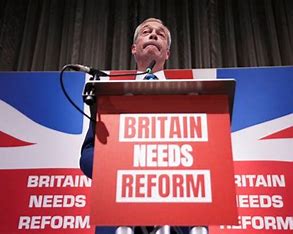What’s Next for British Politics?
Vote To Influence Outcomes
You must be logged in to rate.
Activity Details
With Labour and the Conservatives No Longer Realistic Options, How Do We Restore Sovereignty, Fix Institutions, and Put Britain Back on Track?
Britain at a Crossroads
The British public has had enough.
Enough of broken promises.
Enough of headline-chasing gimmicks.
Enough of politics that serves itself, not the people.
Over the past decade, public trust in the two major political parties has been on a steady decline. Once, Labour and the Conservatives were broad churches — parties with real differences, competing visions, and deep grassroots networks. Today, many see them as two wings of the same bird, locked into a closed system that protects incumbents, tolerates mediocrity, and ducks the big decisions.
It’s not just that people are unhappy with the government of the day — that’s normal. What’s different now is the collapse in belief that either side will fix things. For millions, neither Labour nor the Conservatives have credible answers to Britain’s most pressing challenges: mass migration, failing public services, stagnant wages, declining sovereignty, and a culture that rewards political theatre over practical solutions.
That loss of faith is not a minor political hiccup. It’s a fundamental challenge to the very legitimacy of the system. When the public no longer believes the main choices on offer are worth their vote, democracy itself begins to wobble.
So the question is clear: If the current options aren’t working, what’s next?
The Failure of the Two-Party State
Britain’s two-party system is failing because it’s become a closed loop — a revolving door of power without real accountability.
Conservatives
The Conservatives, despite 14 years in power, have not delivered on their flagship promises. Brexit was meant to restore sovereignty, control borders, and open the door to bold domestic reforms. Instead, much of the legislative and policy space remains constrained by global commitments, court rulings, and civil service inertia. Net migration has soared. Taxation is at a post-war high. Core services — from the NHS to policing — are in worse shape than when they took office.
Labour
Labour, for its part, has shifted towards a managerial, technocratic style that inspires little confidence. Its leadership is more comfortable talking about “managing decline” than about bold nation-building. On key issues like migration, sovereignty, and economic reform, it offers minor tweaks rather than structural change. For many, Labour has become a softer-edged version of the same problem.
The Convergence Problem
Both parties have converged on a narrow band of “acceptable” policies. This centrism might appeal to political strategists chasing marginal seats, but it leaves millions of voters without a real choice. On the big questions — national sovereignty, public sector reform, migration control, cultural direction — the differences are cosmetic.
In short, the two-party system has ceased to be a competitive marketplace of ideas. It’s now a duopoly that protects itself first.
The Sovereignty Question
Sovereignty is about more than Brexit. It’s about whether Britain is truly in control of its own destiny.
That means:
>>> Legal Sovereignty: Being free to make, enforce, and interpret laws without external vetoes from supranational courts or global organisations.
>>> Border Sovereignty: Deciding who enters the country, on what terms, and in what numbers — based on Britain’s needs, not international pressure.
>>> Economic Sovereignty: Setting trade, taxation, and industrial policies that put national interest first, even if they upset global markets.
>>> Cultural Sovereignty: Defining and defending a shared sense of national identity and values without being told they must be “harmonised” with external norms.
Right now, Britain’s sovereignty is diluted in multiple ways: legal obligations to international bodies, trade deals that limit domestic policy space, and a political class unwilling to assert national interest in a clear, unapologetic way.
Restoring sovereignty will require more than rhetoric. It will mean:
>>> Reviewing and, where necessary, exiting international treaties and bodies that override domestic law.
>>> Rebuilding the UK’s capacity to make independent trade and industrial policy.
>>> Reforming the civil service to ensure it implements the elected government’s mandate without sabotage.
The Migration Reset
Migration is not just a policy area — it’s the issue that touches sovereignty, public services, housing, culture, and social cohesion all at once.
Britain’s current approach is broken in two key ways:
>>> Illegal migration: Thousands cross the Channel every year, knowing that even if their asylum claim fails, they are unlikely to be removed.
>>> High legal migration: Even if the boats stopped tomorrow, net migration is still running at historically high levels, putting huge pressure on housing, healthcare, and wages.
A real migration reset means:
>>> Zero illegal entry tolerance: Immediate offshore processing for all arrivals, with returns agreements in place before entry.
>>> Annual net migration cap: Set democratically and adjusted based on capacity, not ideology.
>>> Prioritise citizens and veterans: No foreign national should get housing or benefits ahead of British citizens in need.
>>> Skills-first immigration: Immigration should meet proven skills gaps, not corporate desires for cheap labour.
Without a reset, the UK will continue to face rising housing costs, overstretched services, and cultural fragmentation.
Institutional Overhaul – Fixing What’s Broken
Restoring sovereignty and controlling migration will mean little if Britain’s own institutions remain dysfunctional.
The Civil Service
Once known as a world-class bureaucracy, it has become slow-moving, risk-averse, and in some cases openly resistant to elected policy. Reform means:
>>> Introducing clear performance metrics.
>>> Ending the “jobs for life” culture.
>>> Ensuring policy advice reflects the government’s democratic mandate.
The NHS
Britain’s health service is revered but structurally broken. Funding alone won’t fix it. We need:
>>> Modernised management structures.
>>> More local autonomy for hospitals.
>>> A focus on prevention, not just crisis care.
Policing
Public trust in the police is falling, driven by slow response times and perceived politicisation. Solutions include:
>>> Refocusing on core crime-fighting, not political causes.
>>> Restoring beat policing.
>>> Making senior officers directly accountable to local communities.
Education
Schools and universities must serve the country’s future needs:
>>> Restore academic rigour and free speech.
>>> Strengthen vocational training.
>>> Reduce administrative burdens on teachers.
If institutions do not work for the people, the people will eventually stop working for the institutions.
Ending Attention Politics & Returning to Common Sense
Politics today is increasingly shaped by short-term media cycles and social media storms. The result is government by press release, not by policy.
Attention politics rewards:
>>> Quick outrage over careful debate.
>>> Headlines over implementation.
>>> Political theatre over delivery.
To fix this, Britain needs:
> Long-term policy frameworks that survive changes in government.
> Public input systems — such as citizen assemblies — to set priorities.
> Performance-based ministerial evaluations, made public annually.
Common sense politics means putting results over rhetoric and focusing on the national interest even when it’s unpopular in the short term.
Is Reform UK Enough?
Reform UK has positioned itself as the main challenger to the political establishment, with strong messaging on migration, sovereignty, and economic reform. But can it realistically take power — and keep it?
Strengths:
>>> Clear stance on high-profile issues.
>>> Strong media presence through Nigel Farage and other figures.
>>> Growing support among disillusioned Tory voters.
Weaknesses:
>>> Limited local infrastructure and candidate base.
>>> A policy platform that’s still thin beyond the headline issues.
>>> Vulnerability to being painted as a “single-issue” party.
Even if Reform won seats, Westminster’s entrenched culture — civil service resistance, media hostility, and Lords opposition — could make delivering change extremely difficult.
If Not Reform, Then What?
If Reform is not the full answer, other scenarios are possible:
>> Grassroots Coalition: A network of independents and small parties united under a common reform charter.
>> Regional Autonomy: Stronger English regional governments with real power, breaking the London stranglehold.
>> Citizen-Led Movements: Platforms that crowdsource policy and candidate selection to bypass party machines.
Each approach carries risks — from fragmentation to lack of credibility — but doing nothing guarantees continued decline.
A Roadmap for Political Renewal
If Britain wants a political reset, it can’t wait for a hero politician to appear. The work must start with citizens.
Short-Term Actions:
>>> Call a General Election.
>>> Support credible local candidates who commit to measurable pledges.
>>> Demand transparency and accountability from current representatives.
>>> Use petitions, FOI requests, and legal tools to challenge bad policy.
Medium-Term Actions:
>>> Build cross-community networks around common priorities.
>>> Fund and train new candidates outside the two main parties.
Long-Term Actions:
>>> Push for constitutional reforms:
>>> Electoral reform for fairer representation.
>>>Limits on unelected institutions overriding the public mandate.
>>> Strengthened local government.
Political renewal is not a one-election project. It’s a generational mission.
Conclusion – Choosing the Next Chapter for Britain
Britain’s political system is not going to fix itself. Labour and the Conservatives have had decades to prove themselves, and both have converged on a politics of caution, compromise, and decline.
The next chapter will be decided not in Westminster, but in towns, cities, and communities where ordinary citizens decide enough is enough. Whether that takes the form of Reform UK, a new party, a coalition of independents, or a citizen-led movement, the principle is the same:
Take back control — for real this time.
The choice is clear: accept managed decline, or build a Britain that works again. The tools exist. The ideas exist. What’s missing is the organised will of the people.
That’s why Ideas-Shared exists — to connect the frustrations of millions into a coordinated, results-driven force.



